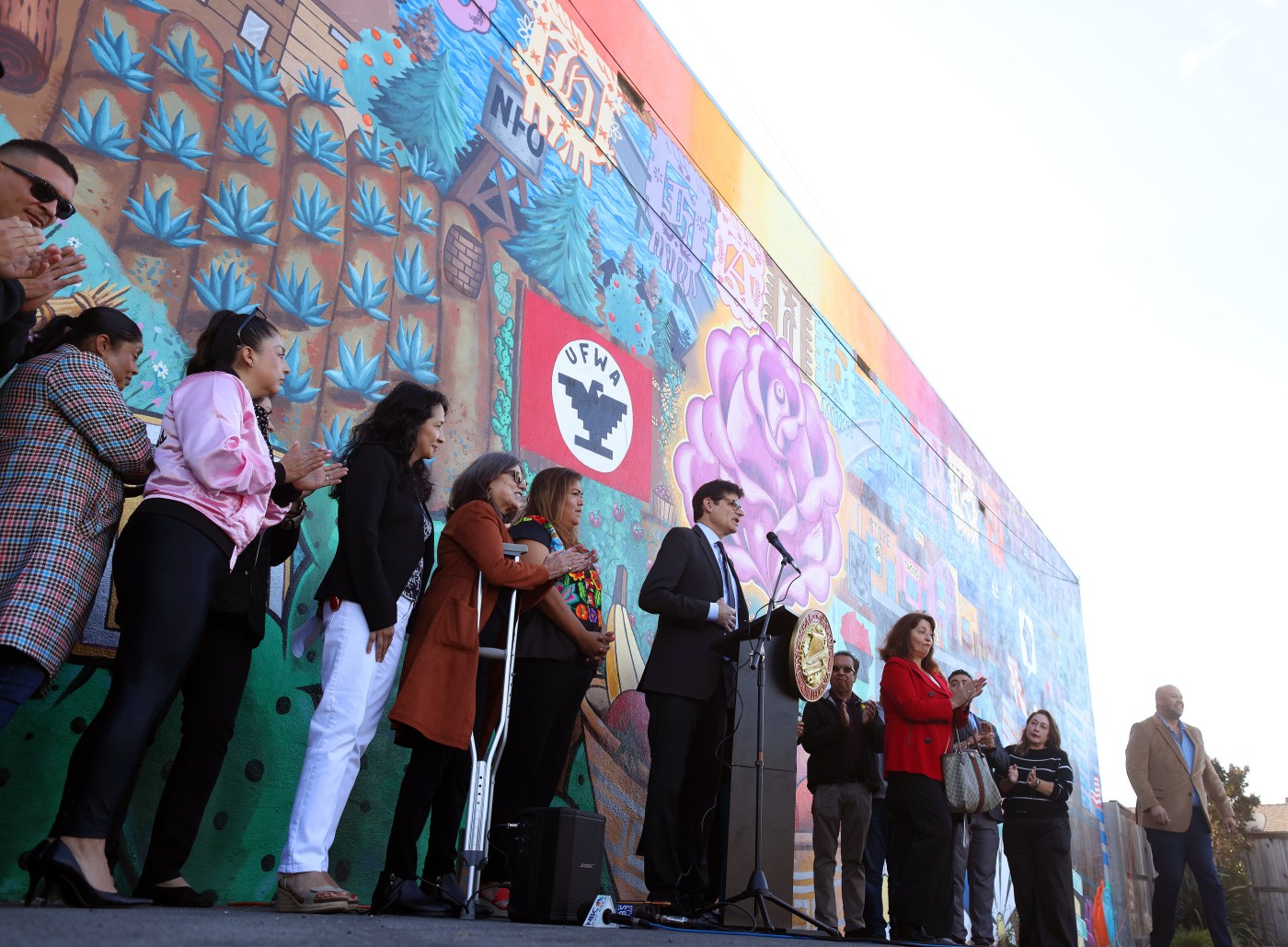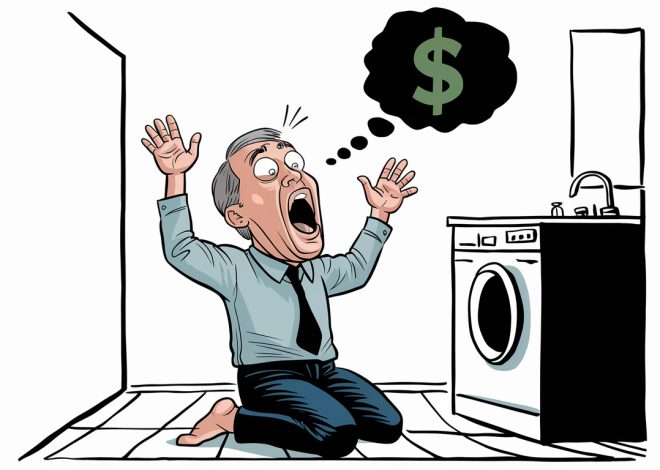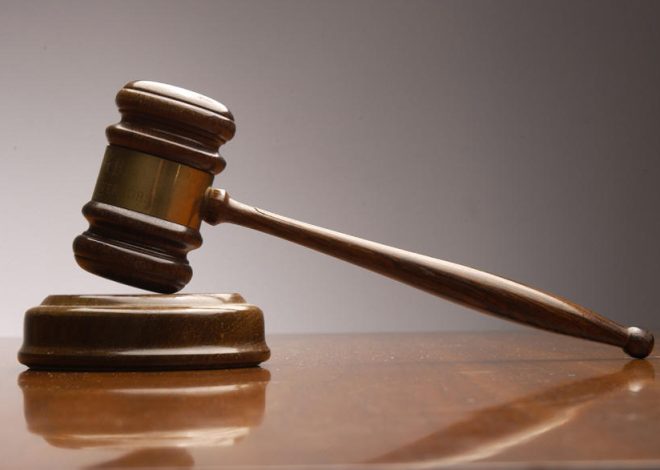
Trump’s mass deportation plans stir emotions in Peninsula’s ‘Little Mexico’
In a nation that prides itself on being built by immigrants, North Fair Oaks — an unincorporated San Mateo County community informally known as “Little Mexico” by locals — is confronting a surge of intolerance toward immigrants, fueled by right-wing rhetoric.
As Republican presidential candidate Donald Trump intensifies his promise to carry out the largest mass deportation in American history at campaign rallies, residents gathered Thursday at Casa Circulo Cultural in North Fair Oaks to push back. Community members from this neighborhood of fewer than 15,000, predominantly Latino and Hispanic immigrants, united to advocate for enhanced protections in response to the escalating anti-immigrant pronouncements from the former president and his GOP allies.
According to the U.S. Census Bureau, more than 11 million people in the United States live without legal status. If Trump is elected and fulfills his promise to deport them all, it could have devastating consequences – including impacts on housing construction, farming and the economy as a whole.
North Fair Oaks is one of three areas in San Mateo County with a majority Hispanic or Latino population, alongside East Palo Alto in the south and Pescadero on the coast. Overall, at least 25% of San Mateo County’s 764,442 residents identify as Hispanic or Latino.
Related Articles
Campaign rhetoric around US-Mexico border is extreme. Living there is a lot more nuanced
House District 14 candidates Swalwell, Kruttiventi walk a fine line on immigration issues
Trump’s deportation plans worry families with relatives in US illegally
Trump says he’ll undertake the ‘largest deportation’ in US history. Can he do that?
Thousands of children adopted by Americans are without citizenship. Congress is unwilling to act
Maggie Cornejo, a first-generation Mexican American raised in North Fair Oaks, describes the current climate as reminiscent of the mid-2000s, when feared Immigration and Customs Enforcement (ICE) officers were a frequent presence in her neighborhood.
“A lot of people in my community are afraid of what could happen on Tuesday because one candidate is clearly more vocal about his views on the immigrant community,” Cornejo said.
Now a planning commissioner in nearby Redwood City, Cornejo reflected on her childhood trauma.
“I’m a native of North Fair Oaks, so I remember when many of my classmates’ parents were being deported,” Cornejo said. “That trauma still impacts our generation; we grew up with memories of ICE driving around here to pick people up.”
State Senator Josh Becker, a Democrat representing most of San Mateo County and parts of northern Santa Clara County, addressed community members who may feel demoralized or fearful due to rising anti-immigrant sentiment.
“We have thousands of immigrant farmworkers along the San Mateo coast supporting a vibrant agricultural ecosystem, but they weren’t heard, seen, or valued until the pandemic,” Becker said. “Suddenly, people acknowledged them as essential workers. We also have many Asian immigrants — Chinese, Korean, Japanese. To me, that diversity is what makes America great; it’s literally the melting pot.”
Becker also discussed Senate Bill 537, signed by Gov. Gavin Newsom in September, which memorializes the deportation of U.S. citizens and legal residents of Mexican descent between 1929 and 1944. The bill mandates the construction of a memorial in the city of Los Angeles or the county to honor this historical event.
“President Herbert Hoover, during the 1930s, faced tough economic times and said, ‘We need these jobs for real Americans,’” Becker said. “He launched a mass deportation effort, resulting in the deportation of not only immigrants but also citizens.”
Becker cited government estimates indicating that 60% of those deported during that period were American citizens, totaling almost 2 million people.
“We’re here to say no; we’re not going to let that happen on our watch,” he asserted.
Becker and local leaders at Thursday’s press conference assured residents they would work to ensure California’s sanctuary protections of migrants would remain, despite Trump’s threats to defund law enforcement agencies that refuse to cooperate with ICE deportations.
“There are trainings on community responses to ICE; we can ensure people’s due process and rights are honored. We’ll bring community groups together if it comes to that,” Becker said.
Belinda Hernandez-Arriaga, founder of the nonprofit Ayudando Latinos a Soñar, cautioned that the use of violent language can translate into real-world physical violence.
“For those fed this vile anti-immigrant rhetoric, they’re taking actions into their own hands to be vicious against immigrants,” Arriaga, a clinical mental health therapist, stated. “We’re seeing what happened in Springfield, and it’s heartbreaking.”
Arriaga referred to the increased threats against Haitian immigrants in Springfield, Ohio, following Trump’s unfounded claims that migrants were stealing and eating pets. According to a CNN report, two local Walmarts and several schools were evacuated due to threats stemming from Trump’s comments, prompting the deployment of additional security and bomb detection dogs to ensure the city’s safety.
Arriaga is all too familiar with violence against immigrants here at home.
Last month, she was invited to the White House in recognition of her work supporting victims’ families and survivors of the tragic Half Moon Bay mass shooting in 2023, which left seven people dead and one severely injured, all migrant farmworkers, after a disgruntled worker opened fire at two separate mushroom farms.
As some recent political polls show growing approval for Trump among Latino voters, North Fair Oaks resident Rafael Avendaño, an immigrant from El Salvador and now a U.S. citizen, urged fellow Latinos to reconsider their support.
“The Republican Party that I know built NACARA, which allowed me to obtain documentation status. We’re very far from the Republican Party I remember,” Avendaño said, referring to the Nicaraguan Adjustment and Central American Relief Act, which was signed in 1997 under President Bill Clinton but received some bipartisan support. “I hope that however you vote, you lean toward a choice that respects and loves your community members because that’s how this nation was built.”


